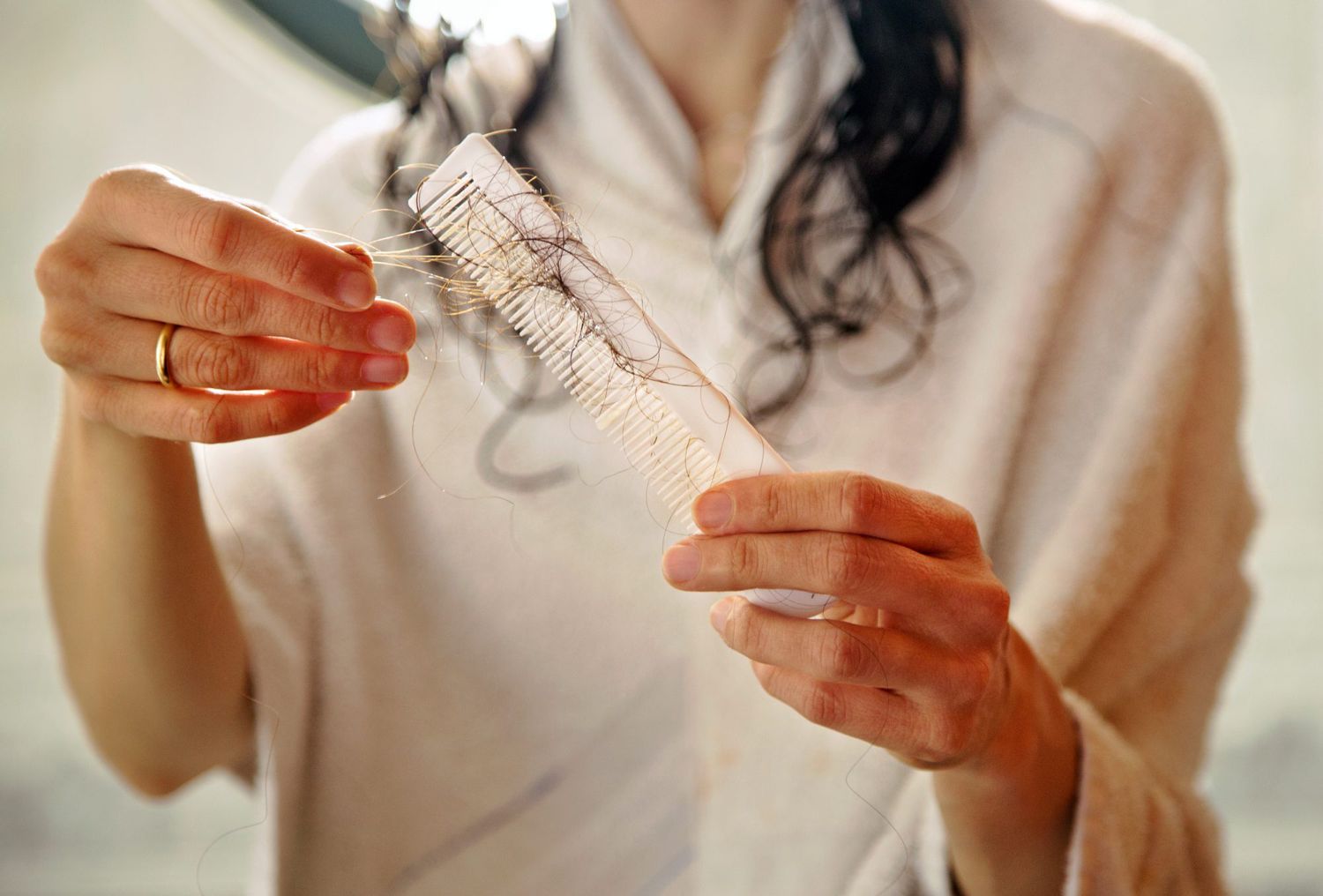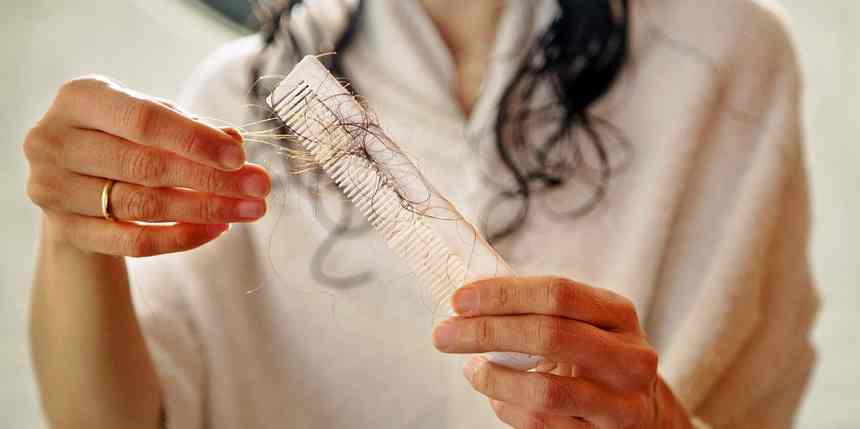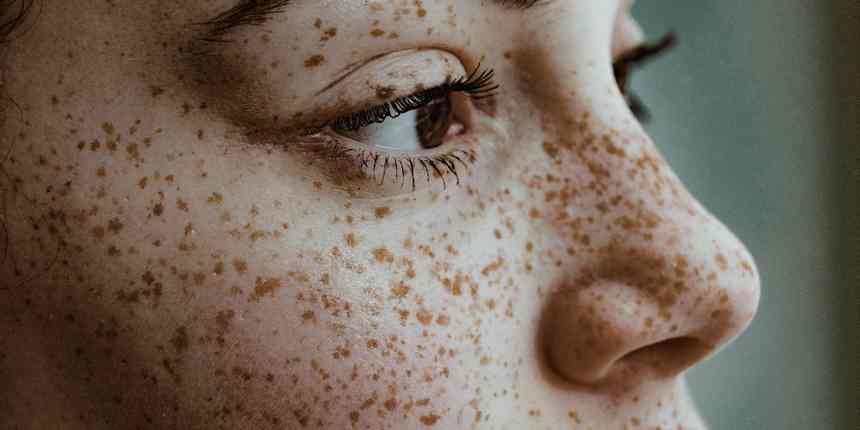If you're experiencing hair loss—whether it's a new or worsening symptom—you're in good company. According to a 2014 survey by the International Society of Hair Restoration Surgery, an estimated 35 million men and 21 million women in the United States experience hair loss to some degree; in all likelihood, that number has only continued to increase over the years. While some shedding is normal (the average person loses approximately 50 to 100 strands per day), excessive hair loss is usually the result of one of several factors, including hormonal changes, stress, aggressive diets, and regular aging. In fact, getting older is one of the most common causes of hair loss, according to Marie Hayag, M.D., a dermatologist based in New York City. "As we age, hormone levels change (consider menopause in women) and hair follicle size also diminishes, contributing to hair loss," she says. "In men, hair loss due to aging frequently begins at the temple and crown; in women it is more widespread across the scalp, but not as noticeable."
 Credit: Sol de Zuasnabar Brebbia / Getty Images
Credit: Sol de Zuasnabar Brebbia / Getty Images
Hormonal changes can disrupt the hair life cycle, decreasing the growth cycle while extending the resting cycle, at any stage of life, however, and this can result in hair looking thinner in general. "Aggressive diets, too, can cause the body to shut down support for non-essential functions like the hair follicle," says trichologist and hairstylist Kerry E. Yates, the CEO of Colour Collective. "Extreme stress like the loss of a loved one, divorce, or even an illness can cause hair loss, as stress promotes high cortisol levels that can cause the body to shut down your non-essential hair follicles in favor of supporting your other essential functions." The result? Thin, sparse hair. The good news? There are several solutions for treating hair loss as you age. Here are some of the top-recommended solutions, according to Dr. Hayag.
Related: The Forefront of Treating Hair Loss in Women
Minoxidil
This over-the-counter ingredient—found in Rogaine's 5% Minoxidil Topical Aerosol ($44.97, amazon.com)—can be used by both men and women alike, and is quite popular amongst those over 50, notes Dr. Hayag. "It is a vasodilator, causing an increase in the blood supply to the scalp and thus delivering oxygen and nutrients to the hair follicles, which contributes to hair growth," she says.
Finasteride (Propecia)
Available by prescription only, this medicine prevents hair loss by stopping the conversion of testosterone to dihydrotestosterone, the androgenic hormone that causes damage to the hair follicles in men, explains Dr. Hayag. "It is more clinically effective than minoxidil, but does have a few side effects," she says, noting that it's important to talk to your doctor to ensure this treatment is right for you.
Hair Supplements
Although there are plenty of hair supplements on the market, Dr. Hayag recommends Nutrafol ($88, amazon.com) to both her male and female patients. "It contains different ingredients to promote hair growth and support the overall health of your hair," she adds.
PRP Procedure
This in-office procedure involves drawing your blood and then separating out the platelet rich plasma (PRP), which is then injected into the areas of hair loss on the scalp. "The PRP is rich in growth factors that can stimulate repair of blood vessels and promote wound healing and collagen production—all of which contributes to hair growth," says Dr. Hayag, who considers PRP a super fertilizer for your scalp. "Three treatments one month apart—and then maintenance every six months—has been helpful for my patients," she adds.
LED Light Therapy
Red light therapy has been shown to increase hair density. "There are products available for home use, such as Revian's RED Hair Growth System ($995, revian.com) and the Theradome Pro LH80 Helmet ($895, amazon.com)," says Dr. Hayag. "Using them for 20 minutes twice per week is not difficult to do, especially now that so many of us work from home."








